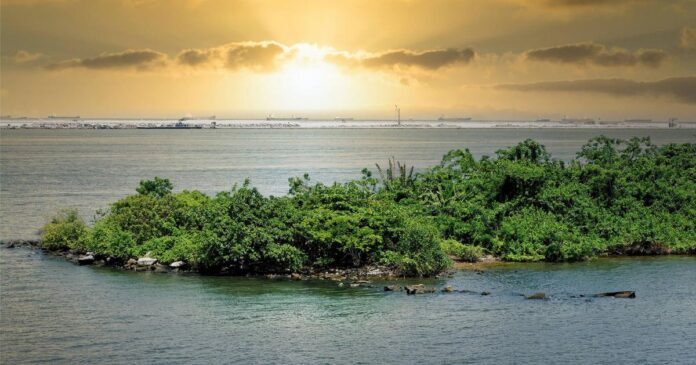By: Abdullahi Inuwa
The continuous quest for balanced federalism, inclusive governance, and improved grassroots development, the clamor for state creation in Nigeria remains a powerful national discourse. Amid the noise, one region quietly stands out—not only by historical relevance but by economic potential, population strength, and geographical viability: Karaduwa, a proposed new state carved from parts of the old North-Western region.
Named after the famous Karaduwa River that runs through parts of Katsina and Jigawa States, Karaduwa is more than a sentimental symbol. It is a region steeped in history, blessed with mineral wealth, expansive agricultural lands, and a dynamic, youthful population. Its creation is not a political demand based on ethnic sentiment but a call driven by economic logic, national equity, and the pursuit of a more effective federation.
The Karaduwa region is rich in solid minerals, ranging from kaolin, gypsum, limestone, and feldspar to large deposits of gold and tantalite. These minerals lie largely untapped beneath its fertile soil, waiting for responsible investment and regulatory attention. With proper statehood, Karaduwa can harness these resources not just for self-sustenance, but also for contributing to the nation’s GDP and driving industrial development.
In an era where diversification from oil is a matter of economic survival, Karaduwa offers Nigeria an ideal launchpad for resource-based industrialization. The region can attract mining companies, create jobs, and establish processing plants that will spur local and foreign investments—just like Lagos did with Eko Atlantic and Akwa Ibom with Ibom Deep Seaport.
Karaduwa is also home to vast and fertile farmlands, supported by irrigation schemes connected to the Karaduwa River and other seasonal streams. From rice to millet, maize to sorghum, groundnut to cotton—the region is a basket of agricultural abundance. It hosts expansive grazing reserves, supports dry and wet season farming, and could be a key driver of Nigeria’s food security agenda.
What Karaduwa lacks is state-level autonomy to channel federal agricultural grants directly to its farmers, develop state-owned agricultural research institutes, and empower rural agribusinesses through tailor-made policies. As a state, Karaduwa could adopt smart farming technologies, build agro-processing clusters, and enhance regional food value chains.
Beyond resources, Karaduwa has the human capital to justify its statehood. Its population, estimated at over five million people spread across several densely populated local government areas, makes it one of the most demographically significant unrecognized zones in northern Nigeria. Youth form the majority of this population—a critical asset for any state seeking long-term development and sustainability.
With a new state status, Karaduwa could benefit from more schools, hospitals, and skill acquisition centers that directly serve its growing population. It would enable more representation in the National Assembly, more federal allocations, and, most importantly, more attention from national development agencies.
Karaduwa’s population is culturally cohesive, with a shared language, heritage, and traditional leadership structure that has historically fostered peace and cooperation among its people. The region has produced influential leaders, academics, and professionals who have served Nigeria with distinction in various capacities.
Politically, the people of Karaduwa have consistently shown a desire for unity and development. Unlike some proposed states torn by internal rivalries and ethnic competition, Karaduwa enjoys a rare consensus among its constituent communities regarding the need for state creation.
Strategically located, Karaduwa borders the Republic of Niger and could serve as a gateway for cross-border trade under the African Continental Free Trade Agreement (AfCFTA). It has the potential to become a trans-Sahelian commercial hub if well developed, with dry ports, trade corridors, and regional road networks.
The proposed state can also house critical infrastructure such as a regional airport, inland container depots, and special economic zones, reducing pressure on neighboring states and catalyzing inclusive development across Nigeria’s northern flank.
The Nigerian constitution empowers the National Assembly to consider requests for new states based on feasibility, viability, and the general will of the people. Karaduwa ticks all the boxes. It is viable, peaceful, resource-endowed, and has an organized, determined populace advocating for recognition.
Creating Karaduwa would not only correct years of underrepresentation but also reduce the administrative burden on overpopulated mother states like Katsina and Jigawa. It would give voice to a people who have patiently waited, and whose time has finally come.
Conclusion
The future of Nigeria’s federalism lies in justice, equity, and the ability to bring governance closer to the people. Karaduwa represents a golden opportunity to do just that.
In an age where Nigerians yearn for responsive government and development at their doorsteps, the creation of Karaduwa State stands not as a luxury, but as a strategic necessity. For a region rich in minerals, blessed with agricultural might, and anchored by a vibrant population, statehood is long overdue.
Karaduwa is not just deserving—it is ready. The time to act is now.
Abdullahi Inuwa Social Commentator ainuwa303@gmail.com




